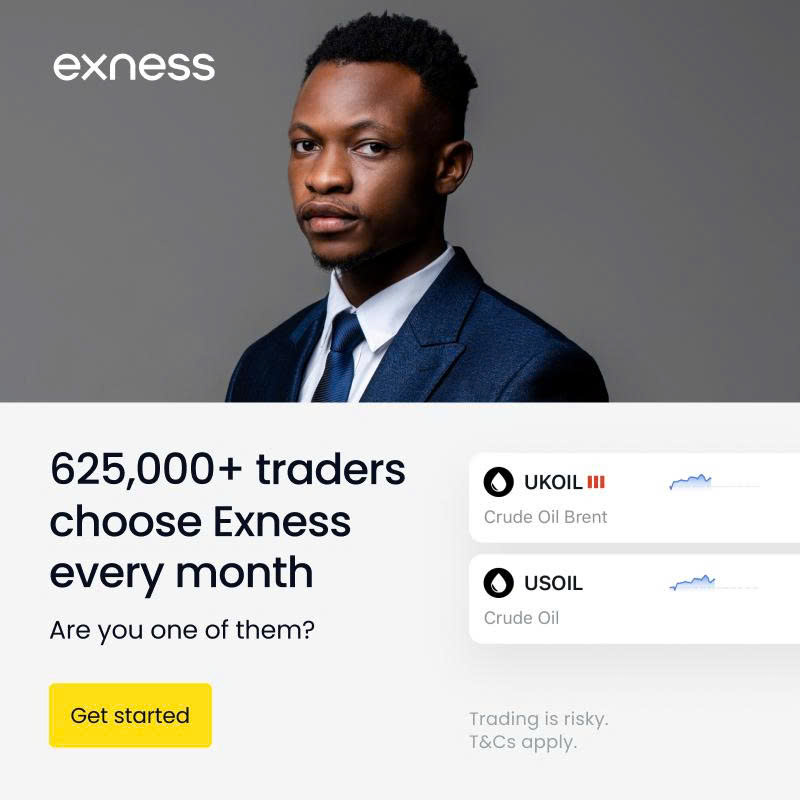
7 minute read
Is Forex Trading Legal in Jamaica? A Clear and Comprehensive Guide
from Forex Jamaica
If you’re wondering, “Is forex trading legal in Jamaica?” the short answer is yes, it’s legal, but it comes with some nuances you need to understand. Forex trading has surged in popularity in Jamaica, but the lack of robust local regulation can make it feel like navigating a gray area. In this guide, I’ll break down everything you need to know about the legality of forex trading in Jamaica, the regulatory landscape, risks, and how to trade safely. Whether you’re a beginner or a seasoned trader, this article will help you get started with confidence.
Top 4 Best Forex Brokers in Jamaica
1️⃣ Exness: Open An Account or Visit Brokers 🏆
2️⃣ XM: Open An Account or Visit Brokers 💥
3️⃣ JustMarkets: Open An Account or Visit Brokers ✅
4️⃣ Quotex: Open An Account or Visit Brokers 🌐
Understanding Forex Trading in Jamaica
Forex trading, or foreign exchange trading, is the act of buying and selling currencies to profit from fluctuations in their exchange rates. It’s the largest financial market globally, with a daily trading volume exceeding $6 trillion. For Jamaicans, forex trading offers a chance to tap into this massive market, potentially earning profits by speculating on currency pairs like USD/JMD or EUR/USD. But before you dive in, let’s address the legal side of things.
In Jamaica, forex trading is legal, but it’s not heavily regulated like in countries such as the US or UK. The Bank of Jamaica (BOJ) and the Financial Services Commission (FSC) oversee financial activities, but they don’t have specific, comprehensive rules tailored to forex trading. This means while you can legally trade forex, you’ll need to rely on international brokers, as there are no locally licensed forex brokers in Jamaica.
The Regulatory Framework in Jamaica
The BOJ is responsible for monetary policy and financial stability, while the FSC oversees securities and investment firms. Together, they ensure a degree of market integrity, but their oversight of forex trading is limited. The Banking Services Act and Securities Act provide some guidelines for financial activities, including forex, but they don’t explicitly regulate retail forex brokers. This creates a gap where traders must be extra cautious.
Since local regulation is minimal, Jamaican traders often turn to offshore brokers regulated by reputable international authorities like:
Financial Conduct Authority (FCA) in the UK
Australian Securities and Investments Commission (ASIC)
Cyprus Securities and Exchange Commission (CySEC)
These regulators enforce strict standards, such as segregating client funds, ensuring transparency, and protecting against fraud. Choosing a broker with one of these licenses is crucial for your safety.
Risks and Challenges of Forex Trading in Jamaica
While forex trading is legal, it’s not without risks. Here are some challenges Jamaican traders face:
1. Lack of Local Regulation: Without strong oversight from the FSC or BOJ, you’re at higher risk of encountering fraudulent brokers. Some unregulated brokers may offer high-leverage schemes or promise guaranteed returns, which are red flags. Always verify a broker’s regulatory status before signing up.
2. Currency Conversion Fees: The Jamaican Dollar (JMD) isn’t a major currency, so most trading happens with pairs like USD/JMD or EUR/USD. Converting JMD to USD or other currencies can incur high fees, eating into your profits. Look for brokers with Jamaican-friendly payment options like credit cards or e-wallets to minimize costs.
3. Market Volatility: Forex markets are highly volatile, and high leverage can amplify both gains and losses. Without proper risk management, you could lose more than your initial investment. Strategies like setting stop-loss orders are essential.
4. Limited Access to Education: Many Jamaican traders lack access to quality forex education, increasing the risk of losses due to inexperience. Investing in reputable training courses or using demo accounts can help bridge this gap.
How to Start Forex Trading in Jamaica Safely
Ready to start trading? Here’s a step-by-step guide to ensure you’re doing it legally and safely:
1. Choose a Reputable Broker
Since there are no locally licensed forex brokers, opt for an international broker regulated by a top-tier authority (FCA, ASIC, or CySEC). Some trusted options for Jamaican traders include:
Moneta Markets: Regulated by ASIC and FSCA, offering low spreads and multiple account types.
Pepperstone: Known for fast execution and MT4/MT5 platforms, regulated by ASIC and FCA.
XM: Offers a wide range of currency pairs and competitive spreads starting from 0.8 pips.
Check for brokers that accept Jamaican clients, offer low fees, and provide secure deposit/withdrawal methods like Visa, Mastercard, or e-wallets (Skrill, Neteller).
2. Open a Forex Trading Account
Once you’ve chosen a broker, open a margin trading account. Most brokers require:
A reliable internet-connected device (smartphone, tablet, or PC).
Identity verification (e.g., Jamaica’s National Identification System card or driver’s license).
Proof of address (e.g., a recent utility bill).
After verification, you can fund your account. Many brokers have low minimum deposits, starting at $50-$250, making it accessible for beginners.

✅ Trade with Exness now: Open An Account or Visit Brokers 👈
3. Use a Demo Account
Before risking real money, practice with a demo account. Most brokers offer unlimited demo accounts where you can test strategies without financial risk. This is especially helpful for beginners to learn the ropes and understand market dynamics.
4. Learn Forex Trading Strategies
Successful trading requires a solid strategy. Popular strategies in Jamaica include:
Scalping: Making quick trades to profit from small price movements.
Day Trading: Opening and closing positions within the same trading day to avoid overnight risks.
News Trading: Capitalizing on market volatility caused by economic announcements.
Invest in education through platforms like The Knowledge Academy, which offers comprehensive forex trading courses tailored for beginners and professionals.
5. Manage Risks
Forex trading is high-risk, so use tools like stop-loss and take-profit orders to limit losses. Avoid over-leveraging, as it can lead to significant losses. Start with low leverage and gradually increase as you gain experience.
6. Understand Tax Obligations
Forex trading profits in Jamaica are subject to income tax, starting at 25%. There’s no capital gains tax, but you must report your earnings to the Tax Administration of Jamaica by March 15 of the following year. Keep detailed records of your trades and consult a local tax professional to ensure compliance.
Best Trading Platforms for Jamaicans
Most brokers offer MetaTrader 4 (MT4) or MetaTrader 5 (MT5), which are industry-standard platforms with advanced charting tools, technical indicators, and fast execution. Some brokers, like Pepperstone, also provide TradingView for social trading and enhanced charting. Look for platforms with:
Low spreads (e.g., 0.0 pips on major pairs like EUR/USD).
Fast withdrawal processing.
Jamaican-friendly payment methods to avoid high conversion fees.
Tips for Avoiding Scams
With the lack of local regulation, scams are a real concern. Here’s how to protect yourself:
Verify Regulation: Only trade with brokers licensed by top-tier regulators. Check their registration status on the regulator’s website.
Avoid Unrealistic Promises: Be wary of brokers promising “guaranteed returns” or high-leverage schemes with no risk disclosure.
Read Reviews: Check user reviews and ratings on trusted sites like DayTrading.com or BrokerChooser to gauge a broker’s reputation.
Test Withdrawals: Make a small deposit and test the withdrawal process to ensure the broker is reliable.
Why Forex Trading Appeals to Jamaicans
Forex trading is gaining traction in Jamaica due to its accessibility and potential for profit. With just a small initial investment, anyone with an internet connection can start trading. The 24/5 market availability allows flexibility, and the volatility of the Jamaican Dollar (JMD) against major currencies like USD offers opportunities for short-term gains. Plus, the global nature of forex means you’re not limited to local markets, opening up a world of possibilities.
Final Thoughts
So, is forex trading legal in Jamaica? Absolutely, but it operates in a loosely regulated environment, which means you need to be proactive about your safety. By choosing a reputable, internationally regulated broker, practicing with a demo account, and investing in education, you can trade forex confidently and legally. Always prioritize risk management and stay informed about your tax obligations to avoid surprises.
If you’re ready to start, take it one step at a time. Research brokers, test their platforms, and build your skills gradually. Forex trading can be rewarding, but it’s not a get-rich-quick scheme. With the right approach, you can navigate the global currency market and make the most of the opportunities it offers. Happy trading!
✅ Trade with Exness now: Open An Account or Visit Brokers 👈
Read more:

